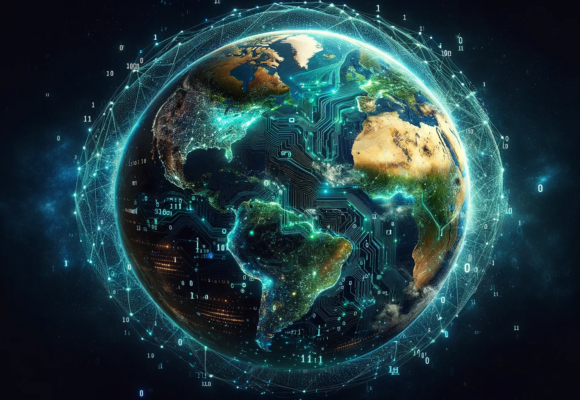Over the next decade, artificial intelligence (AI) is expected to be a major driving force behind transformative changes across the global economy. Its integration into various industries will not only revolutionize how businesses operate but also significantly impact labor markets, productivity, and global economic structures. Here’s a summary of the anticipated changes and challenges:
Accelerated Productivity and Efficiency
AI technologies are poised to dramatically enhance productivity and efficiency across numerous sectors. By automating routine tasks, AI allows businesses to allocate human resources to more complex and creative tasks, thus optimizing the workforce. In manufacturing, AI-driven robots can increase production rates and quality control. In services, AI can personalize customer experiences at scale, boosting satisfaction and loyalty.
Disruption of Labor Markets
One of the most profound impacts of AI will be on labor markets. While AI creates opportunities for new types of jobs, particularly in tech and AI management, it also poses a risk of displacement for roles that can be automated. This shift necessitates a reevaluation of skills and education systems, with an emphasis on lifelong learning and adaptability. Governments and industries will need to collaborate on strategies to manage this transition, ensuring workforce readiness for an AI-driven economy.
Innovation and New Business Models
AI enables the development of new products, services, and business models that were previously unimaginable. This includes everything from AI-driven healthcare diagnostics and treatments to autonomous transportation services and AI-powered financial advisory. These innovations can open up new markets and revenue streams, driving economic growth and competitiveness on a global scale.
Global Supply Chains and Trade
AI will transform global supply chains, making them more efficient, resilient, and transparent. Predictive analytics can forecast demand and supply disruptions, while autonomous vehicles and drones can enhance logistics and delivery systems. However, this also means that countries and companies need to adapt to rapidly changing trade dynamics, with AI capabilities becoming a key factor in global economic positioning.
Economic Inequality and Geopolitical Shifts
The uneven adoption of AI across countries and industries could exacerbate economic inequality, both domestically and internationally. Countries that lead in AI technology and implementation may gain a significant economic advantage, influencing global economic power dynamics. Addressing this challenge requires international cooperation to ensure equitable access to AI technologies and their benefits.
Regulatory and Ethical Considerations
The widespread adoption of AI raises critical regulatory and ethical questions, from data privacy and security to the ethical use of AI in decision-making. Establishing global standards and frameworks for AI governance will be crucial to harnessing its economic potential while mitigating risks associated with bias, transparency, and accountability.
Conclusion
In the next 10 years, AI is set to be a transformative force in the global economy, offering substantial opportunities for growth, efficiency, and innovation. However, realizing these benefits while managing the associated challenges will require proactive strategies from businesses, governments, and international organizations. This includes investing in education and workforce development, creating regulatory frameworks that encourage innovation while protecting individuals, and fostering international collaboration to ensure the benefits of AI are shared broadly across the global economy. As we navigate these changes, the focus must remain on leveraging AI to enhance human capabilities and ensure economic growth is both inclusive and sustainable.


 15 Feb 2024
15 Feb 2024
 Posted by Watchdog Ent.
Posted by Watchdog Ent.  0 Comment
0 Comment 









